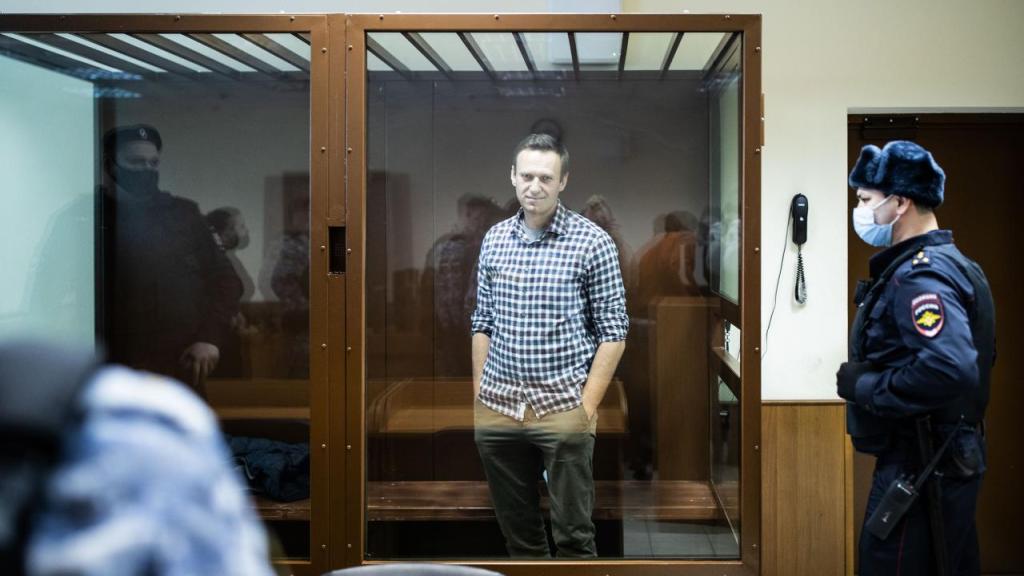Alexei Navalny was a Russian hero

First published in German at WOZ.
Alexei Navalny is dead, killed by his enemies – Vladimir Putin’s regime. The world justly praises his life and struggle; however, a counter-narrative has emerged almost immediately, especially on the left. This narrative dismisses Navalny as a racist, a neoliberal, a quintessential middle-class politician and a Western shill (if not a CIA asset).
I have strong feelings about such reactions, as do other members of the Russian opposition. However, I will not use this space to express my disappointment and anger. Rather, I will try to convey who Navalny was and who he was not.
A product of Russia’s society plagued with nationalism and xenophobia, Navalny grew to consciously overcome these influences. He apologized for his xenophobic remarks and he rejected ethnic nationalism politically. He developed a brand of populism and a patriotic discourse that was free from hate. The beginning of his political career in the 2000s was problematic; however, he outgrew the nationalist leanings. Months before his death, Navalny filed a lawsuit from prison, demanding to stop the violations of the rights of Muslim prisoners. Until the very end, he fought for the rights of others.
Navalny was not a neoliberal. He transformed the fight against corruption (the thing he is most famous for) into a fully-fledged political platform focusing on Russia’s economic inequality. He attacked economic as well as political elites, falling out of favor with Russia’s actual neoliberals who rejected any criticism of big business, including its most corrupt and cronyist representatives. While certainly not a left-wing politician, he was nevertheless attuned to the social woes of his country (some of his advisers, such as Vladimir Milov, are another story).
Navalny’s appeal was broader than the urban middle classes. He created a network of organizations in Russia’s regions, staffed by ordinary people and disaffected youth. Combined with his social-populist rhetoric, this organizing drive deeply alarmed the authorities, and they crushed Navalny’s network with the full force of the repressive state, equating it to a terrorist group. The law enforcement system treated Navalny’s supporters, who maintained a principled commitment to nonviolence, as violent extremists.
Navalny was no Western shill. He never compromised on his political stances to please the Western establishment, which remained rather ambivalent about him. For example, in January 2023, Czech president Petr Pavel said: “Alexei Navalny isn’t really a proper opposition leader. He’s definitely not a liberal democrat, he’s another kind of Russian nationalist.” (Ironically, the leftists who criticize Navalny have found an ally in … the former head of the NATO Military Committee.)
Now let us talk about who Navalny actually was. I believe his political rise can be explained by a combination of qualities that is very rare in a politician. This is what made Navalny such a tremendous asset for the Russian opposition, and I can only hope there will be others who will measure up to him.
Navalny was a strategist. He took the question of power most seriously. He was never satisfied with an “ethical” opposition that did not concern itself with strategy, tactics, organization and resources. He executed brilliant tactical plays, combining media activity, street protests and strategic voting to inflict the most damage on Putin’s regime. He fought smartly, making the most of what he had.
Navalny was a charismatic leader. His charisma ran deeper than public oratory. He was an excellent writer: precise, acerbic, brutal to his enemies and warm, compassionate to his friends. When he published statements from prison, passed on by his lawyers, I never doubted their authenticity for the simple reason that I recognized his unique voice in them. His exceptional presence shone through every medium: public speaking, videos and texts.
Finally, Navalny was brave. Many times he stared into the face of suffering and death, and he never flinched. This reliability of bravery was what made him into such a powerful symbol. We never had to doubt him, only our own ability to be as brave as he was. In that way, he lifted us all up.
I did not always agree with what Navalny said. I found some of his demands, such as the introduction of visas for the Central Asian migrants, to be bordering on right-wing populism. Moreover, Navalny was a liberal politician at heart, and I do not consider myself to be a liberal. I have always supported the emergence of an independent leftist pole in the Russian opposition. I found Navalny’s tactics of rejecting broad alliances and trying to dominate the opposition milieu to be counterproductive. Finally, his own organization was clearly too dependent on his personal leadership. This is all true, and yet Navalny must be recognized for what he was: a giant of anti-authoritarian politics and nonviolent resistance.
In the wake of Navalny’s death, the Kremlin’s little men are typically cruel. They play the disgusting charade around his body, refusing to give it to Navalny's family – no doubt for fear of revealing the sings of wrongful death. They arrested some 400 people around the country for paying their respects to Navalny, with scores of riot police descending on people carrying flowers and candles. On the day Navalny died, Putin was in high spirits, smirking, laughing and enjoying himself during a meeting with students and industrial workers in Chelyabinsk, a city in West Siberia.
Would Navalny have been able to achieve his goal of overthrowing dictatorship and establishing democracy if he had chosen a different strategy, tactics or rhetoric, as some critics suggest? I doubt it. He did what he could and more, but the odds were stacked against him — against all of us. Does this mean that Russia will remain unfree forever? I do not think so. After Navalny there will be others — they will learn from him, they will be inspired by him. They will finish the job.
Navalny is survived by his wife Yulia and their two children. My deepest condolences to his family.